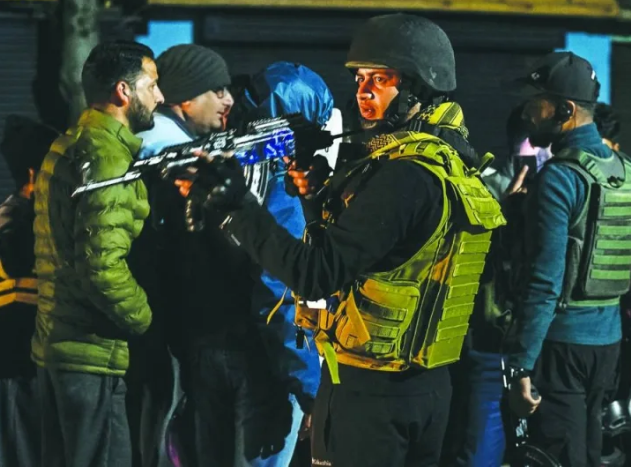Two senior Iranian Supreme Court judges, involved in handling high-profile national security cases, were shot dead in the capital on Saturday, the judiciary announced.
The attacker, whose identity has not been disclosed, opened fire inside the Supreme Court before taking his own life. A bodyguard accompanying one of the judges was also injured in the attack.
The judiciary identified the victims as mid-ranking Shi’ite clerics Mohammad Moghiseh and Ali Razini. Both were involved in cases related to espionage and terrorism, according to judiciary spokesperson Asghar Jahangir.
“The judiciary has made extensive efforts over the past year to identify spies and terrorist groups, which has angered our enemies,” Jahangir told state television. He added that the judges had long been handling sensitive national security cases, including those linked to espionage and terrorism.
State television indicated that the cases managed by the assassinated judges often involved individuals accused of connections to Israel and opposition groups supported by the United States. Further details about the motive or potential suspects were not provided.
The attack highlights ongoing tensions in Iran’s judiciary, which has faced criticism from opposition groups. Opposition websites have previously accused Judge Moghiseh of presiding over trials involving political prisoners, although the judiciary denies allegations of bias or misconduct in such cases.
Judge Razini, one of the victims, was also the target of an assassination attempt in 1998, underscoring the risks faced by officials involved in high-stakes legal and political matters in Iran.
The judiciary did not immediately comment on whether additional security measures would be implemented following the incident.
This attack comes amid heightened scrutiny of Iran’s judicial system, which has been instrumental in addressing cases tied to national security threats. The judiciary has previously asserted that its efforts to counter espionage and terrorism have led to the dismantling of numerous networks allegedly operating against Iran.
While no group has claimed responsibility for the killings, the incident underscores the fraught landscape of Iran’s security environment, where judicial and political officials are often in the crosshairs of domestic and foreign opposition forces.
Further investigations are underway to determine the motive and any potential affiliations of the attacker, as Iran’s judiciary pledges to continue its crackdown on espionage and terrorism.



